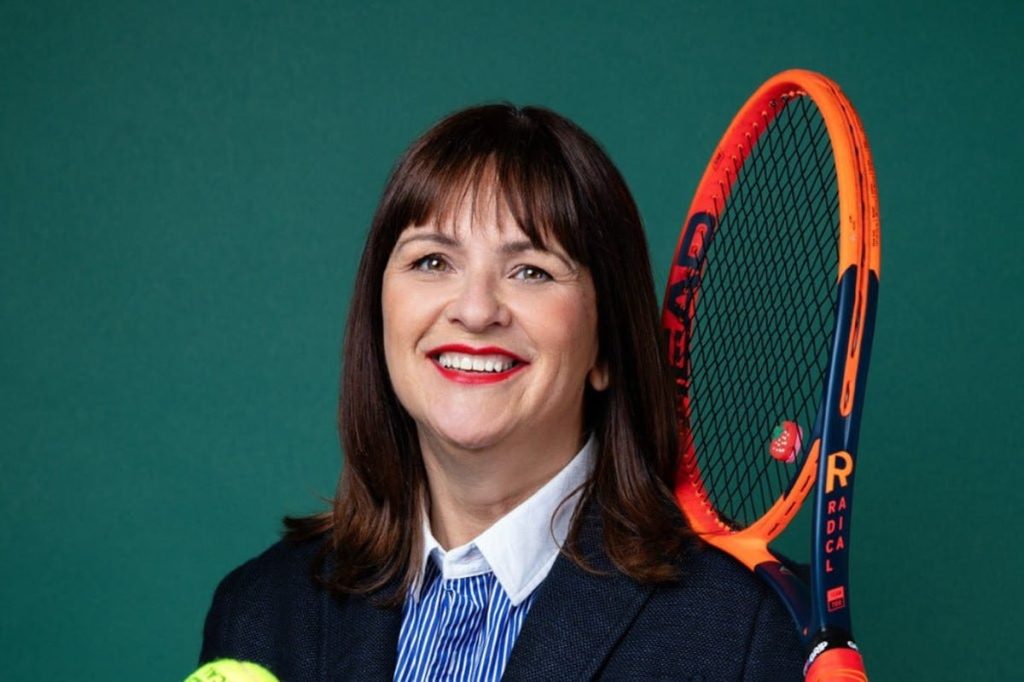The Evolution of Wimbledon: A Shift from Human Expertise to Technology
Wimbledon, one of the most prestigious tennis tournaments in the world, has long been a symbol of tradition and excellence. However, the introduction of technology into the game has sparked a debate about the role of human officials and the impact on the tournament’s legacy. Pauline Eyre, a former line judge who officiated at 16 Wimbledon tournaments between 1988 and 2003, has voiced concerns about the changes that have taken place over the years.
A Personal Perspective on Change
Eyre, now 58 and based in north London, recalls her time as a line judge, where she witnessed some of the most iconic matches, including Centre Court finals and high-profile games featuring players like Serena Williams and Venus Williams. She described the shift in the tournament’s operations as a loss of the “joy” that once characterized the event.
The implementation of an electronic line-calling system this year has significantly altered the roles of line judges. Some former officials have returned to this year’s tournament in the role of “match assistants,” sitting beside the chair umpire and assisting with ball changes. However, Eyre feels that these new roles lack the professionalism and skill that were once associated with the position.
The New Role of Match Assistants
According to Eyre, the transition has led to a situation where former line judges are now seen as “glorified butlers.” She explained that many of them are simply sitting and doing nothing, taking players to the toilet or watching ball kids change the balls. This shift, she argues, has resulted in a de-skilling of the workforce, as individuals who were once highly trained professionals are now relegated to less meaningful tasks.
Eyre also highlighted the financial implications of this change, noting that these new roles do not come with the same level of pay as their previous positions. She believes that the reliance on machines has diminished the value of human expertise, leading to fewer job opportunities for skilled workers.
The Impact on the Spectator Experience
For Eyre, the human element of the game is crucial. She mentioned that spectators enjoyed seeing players deal with adversity, rather than arguing against a machine. These moments, she says, are part of what makes Wimbledon special. The presence of human officials allows for a more dynamic interaction between players and the match officials, adding depth to the experience.
In discussing the broader implications of AI and electronic systems in society, Eyre expressed concern about the loss of livelihoods. She noted that while machines may replace human workers, it does not necessarily mean that new, equally valuable jobs are created. Instead, the trend seems to be towards reducing the number of people required and increasing the reliance on technology.
Technical Challenges and Public Reaction
Despite the technological advancements, there have been instances where the electronic line-call system has failed. During Taylor Fritz’s semi-final, the system incorrectly announced a “fault” after a shot landed well inside the baseline. The issue was attributed to the player’s service motion beginning while a ball boy or girl was still crossing the net, causing the system to miss the start of the point.
Wimbledon organizers responded by stating that the chair umpire instructed the point to be replayed. However, such incidents raise questions about the reliability of the technology and its ability to handle complex situations effectively.
The Role of Chair Umpires
Eyre also emphasized the importance of chair umpires, who serve as the final authority in disputes during a match. She argued that without human officials, there would be no one for players to “rail against” or to explain things to. The presence of a chair umpire adds a layer of compassion and understanding, which is essential in high-pressure environments.
A New Chapter in Eyre’s Career
Despite her concerns, Eyre continues to engage with the public through her comedy show, “Anyone For Tennis,” which explores her experiences as a line judge over 20 years. She shared her journey from a young girl dreaming of playing at Wimbledon to becoming a key part of its success. Although she never had the talent to compete at the highest level, she found fulfillment in contributing to the tournament’s legacy.
Ongoing Concerns and Future Outlook
Wimbledon organizers have expressed confidence in avoiding further technical issues following a major error in Sonay Kartal’s fourth-round match. The incident, where the system failed to call a shot as “out,” was attributed to the technology being turned off in error on a section of the court. However, the concerns raised by players like Jack Draper and Emma Raducanu highlight the ongoing challenges of integrating technology into the sport.
As Wimbledon continues to evolve, the balance between tradition and innovation remains a critical discussion. The question of whether technology enhances or detracts from the experience of the game will likely persist, shaping the future of the tournament for years to come.


